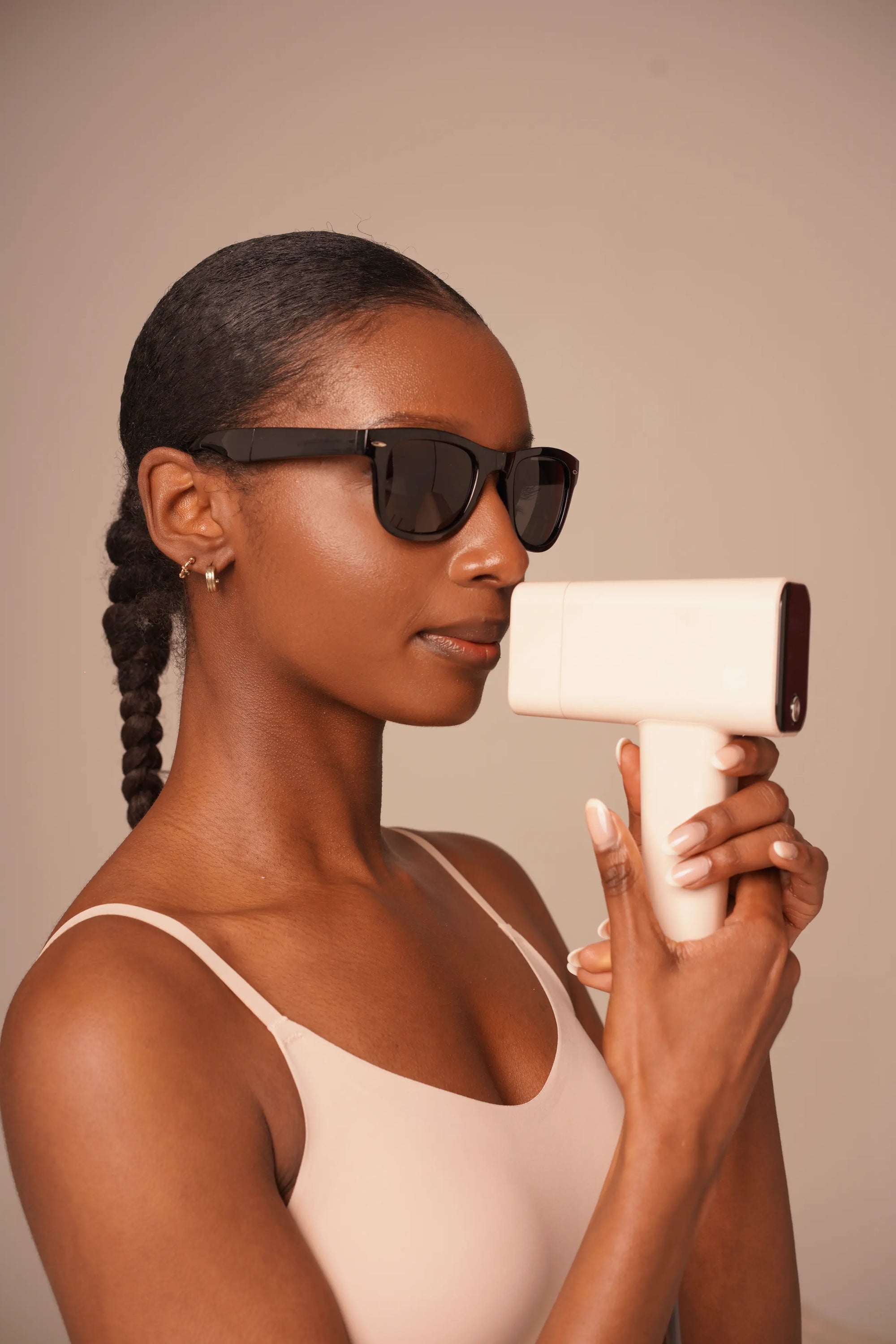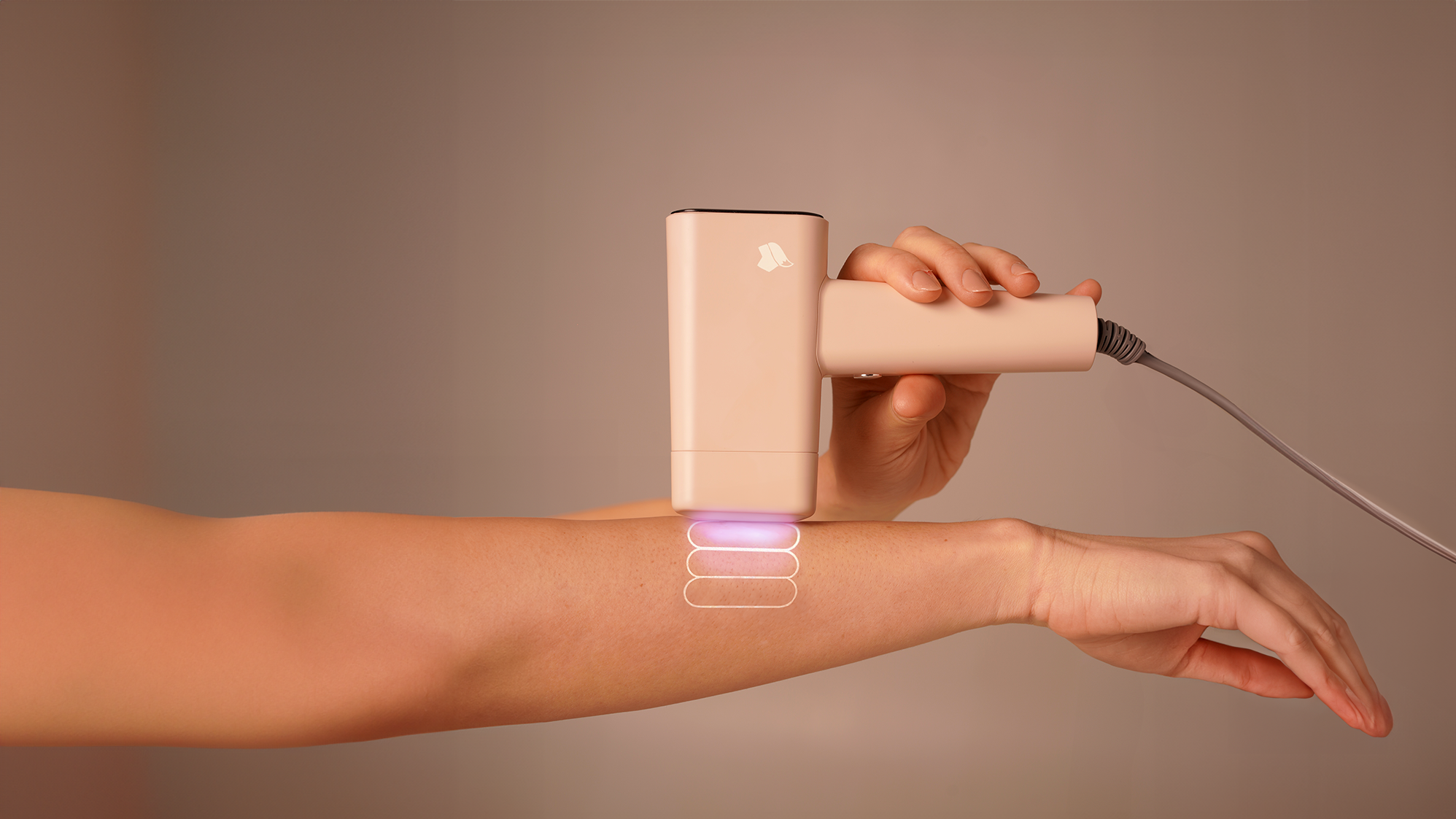Intense Pulsed Light (IPL) hair removal has gained popularity as a non-invasive, effective, and convenient method for long-term hair reduction. Its appeal lies in its adaptability for at-home use and its ability to treat multiple areas of the body. However, while IPL technology is generally safe, it is essential to understand where it can be most effective and where caution—or complete avoidance—is warranted.
In this article, we explore the best areas for IPL hair removal, supported by clinical insight and user experience, and highlight regions of the body where treatment may be less effective or potentially unsafe.
How IPL Hair Removal Works
IPL devices emit broad-spectrum light that targets the melanin (pigment) in hair follicles. The light energy is absorbed and converted into heat, which damages the follicle and inhibits future hair growth. Because this mechanism relies on contrast between hair color and skin tone, IPL is most effective on individuals with light skin and dark hair. Modern devices often feature skin tone sensors to enhance safety and efficacy across a broader range of skin types.
Best Areas for IPL Hair Removal
1. Legs
The legs are among the most popular and effective areas for IPL hair removal. The skin surface is relatively flat, and hair in this region tends to be coarse and dark, making it ideal for light-based technologies.
Benefits:
-
Large surface area allows quick treatment sessions
-
Consistent results with regular use
-
Reduces the need for frequent shaving or waxing
Tips:
-
Shave the area beforehand for maximum light penetration
-
Use a higher intensity setting if your skin tone allows
2. Underarms
Underarms respond well to IPL due to the typically coarse hair in that region. Moreover, users often seek alternatives to shaving here due to irritation or ingrown hairs.
Benefits:
-
Effective hair reduction after a few sessions
-
Helps reduce sweat-related odor caused by hair
Tips:
-
Clean and dry the area thoroughly before use
-
Avoid applying deodorant immediately after treatment
3. Bikini Line
The bikini area is another effective target zone for IPL. While the hair here is often darker and coarser (which aids efficacy), the skin is more sensitive, requiring careful handling.
Benefits:
-
Long-term smoothness
-
Reduces irritation compared to waxing
Tips:
-
Start with lower intensity and increase as tolerated
-
Avoid full Brazilian unless the device is certified for intimate areas
4. Arms
While arm hair tends to be lighter and finer, many users opt for IPL to reduce visibility or maintain a more polished appearance.
Benefits:
-
Works well over time with consistent treatment
-
Reduces the need for shaving fine hair
Tips:
-
Best results seen on darker arm hair
-
Adjust intensity based on skin tone
5. Face (Lower Facial Area Only)
Facial hair, particularly on the upper lip, chin, and jawline, can also be treated effectively with IPL. However, extra caution is required due to the proximity to sensitive features.
Benefits:
-
Good for targeting hormonal hair growth (e.g., chin)
-
Smoother skin texture over time
Tips:
-
Always wear protective eyewear
-
Avoid IPL on the eyebrows, eyelashes, or near the eyes
-
Use devices specifically rated for facial use
Areas to Avoid with IPL Hair Removal
Despite the versatility of IPL devices, not all body areas are safe or suitable for treatment. Below are zones that should be approached with caution or avoided altogether.
1. Around the Eyes
Never use IPL around or on the eyelids, eyebrows, or directly near the eyes. The light can cause serious ocular damage even with brief exposure.
Why Avoid:
-
High risk of eye injury
-
Skin too delicate and uneven for safe application
2. Genital Area (Internal/Full Brazilian)
While the bikini line is generally safe, full Brazilian treatments (involving labia or anus) are not recommended with at-home IPL devices unless explicitly approved by the manufacturer.
Why Avoid:
-
Skin is too thin and sensitive
-
Higher melanin concentration increases burn risk
3. Mucous Membranes & Tattoos
Avoid any area with mucous membranes or tattoos. IPL can react unpredictably with tattoo pigments, leading to burns or discoloration.
Why Avoid:
-
Potential for burns and scarring
-
Tattoos may absorb light energy and overheat
4. Moles, Freckles, and Dark Spots
IPL should not be applied directly over large or dark pigmented lesions, including moles and age spots, as they can absorb too much light.
Why Avoid:
-
Increased risk of skin irritation or hyperpigmentation
-
May interfere with skin monitoring or diagnostics
5. Scalp & Inside Ears/Nose
These areas are not only difficult to treat due to shape and access but also carry higher risks of burns or damage.
Why Avoid:
-
Anatomically challenging
-
Higher sensitivity and low efficacy
Summary: Safe & Unsafe Zones for IPL Hair Removal
| Area | Safe for IPL? | Notes |
|---|---|---|
| Legs | Yes | Ideal candidate: flat surface, dark hair |
| Underarms | Yes | Effective with proper preparation |
| Bikini Line | Yes (partial) | Avoid internal/genital areas |
| Arms | Yes | Best for darker hair |
| Lower Face | Yes | Avoid eyes, use facial-rated devices only |
| Around the Eyes | No | High risk of eye injury |
| Genital Area (Internal) | No | Too sensitive; burn risk |
| Tattoos/Moles | No | Avoid due to pigment interference |
| Scalp/Nostrils/Ears | No | Anatomically unsafe and low effectiveness |
IPL hair removal can be an effective and safe method for long-term hair reduction when used correctly. Understanding which areas are suitable—and which are not—is critical to maximizing results and minimizing risks.
If you're starting out, focus on areas like the legs, underarms, and lower face using a device certified for home use. Always follow manufacturer guidelines, perform patch tests, and consult with a dermatologist if you have underlying skin conditions.
Remember: better results come from consistency, patience, and informed use.
Sources:
Gold MH, Foster A, Biron JA. Low-Energy Intense Pulsed Light for Hair Removal at Home. J Clin Aesthet Dermatol. 2010;3(2):48–53. (Source)
Kwon HH, Yoon JY, Park HY, et al. Home-based devices in dermatology: a systematic review of safety and efficacy. Arch Dermatol Res. 2021;313(5):339–349. (Source)



